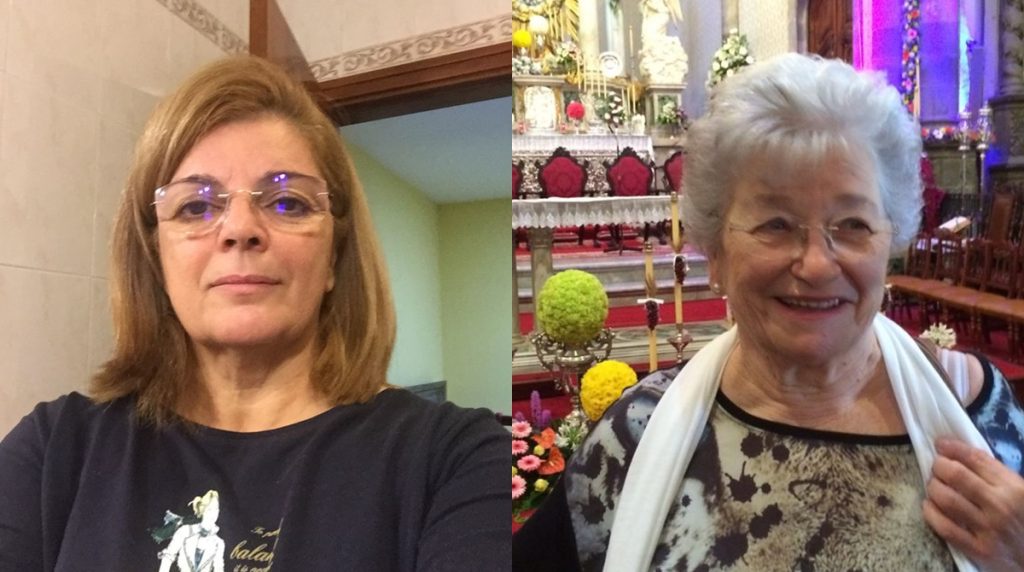
Petra Batista Herrera is 87 years old, with Parkinson’s disease and various pathologies that required her to be admitted to the hospital on July 16 at the Hospiten Bellevue clinic in Puerto de la Cruz. A week later, the implementation of new measures against Covid due to the entry of Tenerife to Phase 4 due to the high number of infections, prevented her daughters, Carmen Nieves and María José, and the rest of the family, from seeing her again.
From that moment, visits are only allowed in exceptional cases, terminal patients or in imminent risk, according to the protocol established by the Government of the Canary Islands.
The 23rd was the last day that Carmen saw her mother with the “emotional imbalance” and the despair for both that this situation entails. The few times he has managed to talk to her has been thanks to the “goodwill” of the health workers, who contact them through his personal mobile phone and for whom he only has words of thanks.
For these reasons, it asks for a protocol of visits for hospitalized elderly people and a specific internal service that links them with their family to avoid the so-called hospital syndrome or delirium, which affects them by disorienting them, which increases when they are isolated from their referents and which can have serious repercussions on both your physical and mental health. She fears that her mother will be affected because on one occasion she even asked her to “not abandon her” because “that panic” haunts her head despite the fact that she has a family to take care of her.
This La Orotava neighbor follows two ways to try to change this situation, one with the Bellevue clinic and the other with the Ministry of Health.
In the first case, he did so immediately through a letter of suggestions on the web, thanks to which he received a call from a public relations person “who was surprised” by what he told him, but “that it was of no use” despite the fact that He assured him that “it was going to be solved.”
Communication is fluid, according to the clinic
However, from this health center they have denied this reality and emphasize that “the communication of the family with the patient is fluid and that the first is informed promptly of its evolution”.
Carmen denies it and that is why she requests the creation of a patient care service that links her with her family, and “which does not currently exist in Bellevue” since, she assures, “it is the health personnel who, in addition to their clinical work, when he can, he receives calls from relatives to patients ”who, like his mother, cannot pick up the room phone on their own.
In the letter that he sent to the Ministry on Tuesday, he suggested that there be a person empowered to be the patient’s link with the family, with a mobile number and a specific schedule.
Carmen knows that it is difficult to visit her mother in phase 4. But due to her mother’s age and pathologies, she asks to do it at least once a week, fulfilling certain conditions, such as the presentation of the vaccination certificate, an antigen test and a PPE, in addition to keeping all security measures.
“The elderly should not live alone, especially in these moments, when they need their family the most. The government’s protocol is wrong and will continue to be wrong if we don’t complain, ”he says.
“The measures are precisely to protect this group, one of the most vulnerable”
From the Ministry of Health of the Government of the Canary Islands they understand “perfectly” the situation of Carmen, which is also repeated in many families, but ensures that the protocols are, “precisely, to protect the elderly, one of the most vulnerable groups in the fight against the Covid and the relatives are possible vectors of contagion ”. They recognize that “it is not acceptable that these people cannot have their visits regulated, but it is to avoid a greater evil, since in phase four, with the level of contagion that exists in the street, protect the elderly and above all, if they are hospitalized, it is the priority ”. The regional department hopes, shortly, that the infections begin to decrease, that phase 3 can be passed, and as a consequence, implement other complementary measures.
“We understand what the elderly and their families are going through in this pandemic, it is very hard, but it is to protect them,” they insist.















